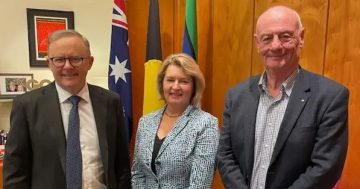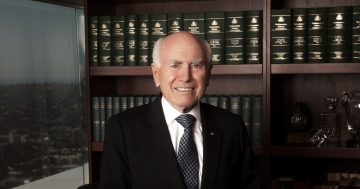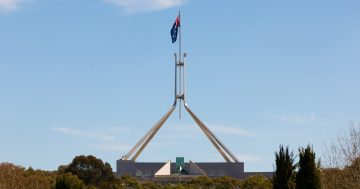
What’s the government doing about gambling advertising? Good question. Photo: iStock.
The Federal Government’s plan for gambling advertising remains anyone’s guess, with just one week left of the parliamentary sitting schedule for the year.
Labor is coming under increased pressure to reveal its hand before parliament rises for 2024.
With growing speculation a federal election could be called before parliament returns next year, demands are building for the government to come clean over its gambling advertising intentions.
A bipartisan parliamentary inquiry released its report in June, recommending a total ban on the advertising be phased in over three years.
That inquiry was chaired by the late Labor MP Peta Murphy, who was a strong advocate for an end to gambling ads, and many inside the ALP want to see some action on the issue in honour of her work in that area.
However, the government has not responded to the report despite repeated questioning on the matter.
Communications Minister Michelle Rowland shed little light when asked about the possibility of legislation or other methods to introduce a ban on gambling advertising.
During a media interview in the penultimate sitting week, the Minister said the government had not yet decided whether a proposed ban would be legislated or if it would be regulated through codes of practice.
She said the Federal Government was taking advice, was working with states and territories and was hoping to have something sorted before the end of the year.
But Shadow Communications Minister David Coleman noted that time was fast running out for the government to do anything at all about gambling advertising this year, and it was highly unlikely Australians would be any wiser about Labor’s intentions any time soon.
“Given that there’s four parliamentary sitting days, you’d think if you’re going to introduce legislation, you’d at least know the form the regulation would take,” he said.
“So, not looking likely …
“We have a Prime Minister who is scared to do anything because he’s scared of the reaction of media companies.
“He’s scared of the reaction of Tim Costello, and frankly, he’s scared of the reaction of his own backbench, who have been calling for action for more than 18 months.”
Tim Costello is a high-profile advocate for the Alliance for Gambling Reform.
Last month, Ms Rowland said plans would be announced before the election, without giving any details. She flagged a “comprehensive response” to the Murphy report.
“We will be taking advice from the department and from the regulator on the best way in which to achieve that,” she said then.
But nothing has changed since then – or at least that is the public perception.
Instead of an outright ban, changes to gambling advertising could include limiting it to two ads an hour, blocking it during children’s viewing hours, and banning it during sporting games.
Mr Coleman said it was hard for the Opposition to state its position on the type of gambling advertising restrictions the Coalition would support, without knowing what the government’s proposals were.
The Greens introduced their own Ban Gambling Ads Bill to the Senate, seeking to ban gambling ads on TV, radio, print and online.
They say it is consistent with the multi-party parliamentary inquiry’s recommendations and has public support, with seven in 10 Australians backing the need for a gambling ad ban.
Greens communications spokesperson Sarah Hanson-Young said the government had to deliver on the Murphy Inquiry recommendations.
“Time is up and the public are sick of the excuses and the delays,” she said when introducing her bill.
“The government clearly doesn’t have the guts to stand up to the bookies and ban gambling ads …
“The Prime Minister said recently that banning gambling ads was the ‘easy option’ to reduce gambling harm. We agree and we call on Labor and Liberal to back our bill.
“These ads are crucial to the bookies’ business model as they fuel the human misery of problem gambling.
“People are sick of having gambling ads rammed down their throats during family time when we are watching the footy.”
Original Article published by Chris Johnson on Riotact.






